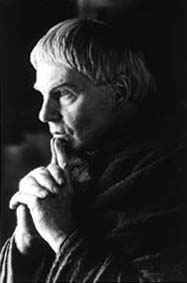grendel1968
First Post
I always felt that the differences between the types of "magic" (arcane, divine, psionic) were essentially semantic; none of the things these varying types of casters do are possible in the real world, so it never mattered to me much whether the caster had to pray to his gigantic imaginary friend, rub bat pooh between his fingers, or give himself a brain aneurism via sheer focus of will in order to throw a fireball. They are all very similar to me.
I ban psionics, and have for 25 years, in my campaigns because I find them to be consistently poorly balanced... Just my opinion.
One previous poster (forgive my poor memory) mentioned a 2E psionic wild talent with the summon planar creature ability. I actually had this happen last time I (in a moment of pique) allowed psionics... In 2E a wild talent recieved every prerequisite for any random wild talents, and sufficient psionic power points to cast every power he had, once daily... the net result was a level one wizard able to summon a demon, or teleport a dozen times a day, for example. I asked the player to chuck the character in the name of balance, he declined, and when I made it clear I would exercise DM's prerogative and kill the character in the interest of fairness, he attacked and killed the entire party... using his psionic wild talent to do so.
Yes, a yellow flag on me for allowing it all to happen, especially since I was so biased against psionics to begin with. But I've yet to see what I consider a fair and balanced psionic system in any edition of D&D, and I've seen and played them all.
Oh, one more thought. I also associate psionics more with the Sci-Fi genre because my back-up game in the 70's was Traveller, a Sci-Fi RPG that includes psionics as part of the core mechanics.
I ban psionics, and have for 25 years, in my campaigns because I find them to be consistently poorly balanced... Just my opinion.
One previous poster (forgive my poor memory) mentioned a 2E psionic wild talent with the summon planar creature ability. I actually had this happen last time I (in a moment of pique) allowed psionics... In 2E a wild talent recieved every prerequisite for any random wild talents, and sufficient psionic power points to cast every power he had, once daily... the net result was a level one wizard able to summon a demon, or teleport a dozen times a day, for example. I asked the player to chuck the character in the name of balance, he declined, and when I made it clear I would exercise DM's prerogative and kill the character in the interest of fairness, he attacked and killed the entire party... using his psionic wild talent to do so.
Yes, a yellow flag on me for allowing it all to happen, especially since I was so biased against psionics to begin with. But I've yet to see what I consider a fair and balanced psionic system in any edition of D&D, and I've seen and played them all.
Oh, one more thought. I also associate psionics more with the Sci-Fi genre because my back-up game in the 70's was Traveller, a Sci-Fi RPG that includes psionics as part of the core mechanics.




